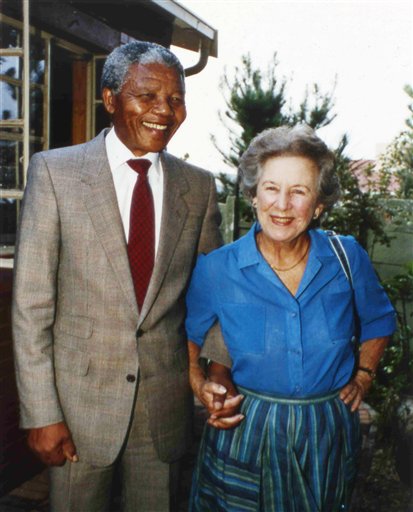An exhibition recognizing the accomplishments of South African anti-apartheid activist Helen Suzman is visiting campus from Feb. 25 to March 27 in the Edith O’Donnell Arts and Technology Building atrium.
A representative of the Dobkin Family Foundation, curator Jill Vexler visited South Africa in 2007 to meet with the curators of the Helen Suzman exhibition and convince them to let her recreate the presentation in the United States.
During her stay, Vexler spoke with Suzman herself, describing her as energetic, focused and devoted to making the world a better place even at her old age. The sole opposition to apartheid in the Progressive Party, Suzman fought for equal rights as a parliamentarian for 13 years from 1961 to 1973.
In a parliament dictated primarily by Calvinist, Afrikaner men, it was unusual for a white, Jewish woman to criticize the National Party’s policies. In her effort to eliminate racial segregation in South Africa, she was a spokeswoman for voting rights, health rights, and prisoner’s rights.
“She translated old-fashioned liberal ideals, such as rule of law, equal representation and equal opportunity,” said Dennis Kratz, dean of the School of Arts and Humanities. “She fought so that everyone could share in the benefits of an open society.”
The exhibit will feature 40 years of photographs, letters, speeches and news articles about Suzman highlighting her work fighting apartheid despite facing anti-Semitism and other forms of opposition. It will also show Suzman’s ongoing friendship with Nelson Mandela, which began in 1967 when they met at the prison on Robben Island, where Mandela had been detained for 27 years.
“What I admire about her is that her arguments were based on a vision of how good things could be,” Kratz said. “She’s a model of the kind of leadership and productive action for which we should be preparing our students. I hope it will inspire students to enhance the role of public service in their plans for the rest of their lives.”
Jill Kelly, assistant professor of South African history at SMU, will be conducting a panel interview on Feb. 25 from 7:30 to 9 p.m. discussing South African expatriates who will share what life was like during the apartheid years in South Africa. Joan Gremont, the creator of the Arnold A. Jaffe Holocaust Library, proposed the panel and is working with UTD to set it up.
“It’s a good lesson in social justice and fighting for human rights,” Gremont said.
Kimberly Hill, a visiting assistant history professor at UTD, will be joining the panelists and answering Kelly’s questions through the perspective of her own experience in South Africa. Although she didn’t experience apartheid firsthand, Hill is an expert in African-American history and civil rights movements.
Kelly said the intent of the panel is to have local South Africans share their experiences growing up in apartheid South Africa. She’ll ask questions about their youth, schooling, media and politics, among other topics. It is meant to give the audience some context of the time during which Suzman served.
There will also be a Q&A afterward for the audience to engage in conversation with the panelists. Vexler, who is now the exhibit manager for the event, will also be in attendance and will talk about curating the exhibit.
Of all the people presenting, Vexler was the last to have any contact with Suzman before she passed away in 2009 and is still in touch with Suzman’s daughters.
“What I deduced from our conversations is that the evolution of her social activism wasn’t a marked climb from one topic to another,” Vexler said. “It wasn’t anything plotted or linear, but the deeper she got into the study of racial segregation and looked at the non-white realities in concert with legislation, the more she knew she had to act.”
Ed. Note: A previous version of this story stated that the exhibition opened Feb. 23 2015 but that was delayed due to weather conditions.














